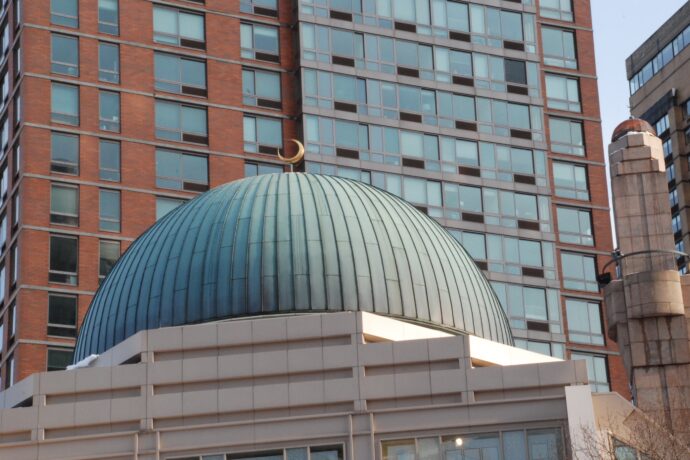It was the Friday before the most consequential election of our lives. You’d think maybe, just maybe, the mosque would make note of it. Right?
I’d walked a fair distance during a beautiful autumn afternoon to the closest mosque. A good sermon should leave you feeling inspired, recharged, renewed. An ordinary sermon should at least leave you no worse off. I left this one fuming. I sat through a half-hour sermon in Arabic, and then another half-hour in English translation.
As the topic droned on and on—I know, very poor word choice for a Muslim audience—the imam finally made mention of what I needed to know was coming. “Brothers and sisters, don’t forget…” Here it came. Thank God. I could forgive everything else he’d said for the previous 45 minutes. “…to vote.” Yes!
Oh my God, this was perfect. There must have been a few hundred Muslims in the room, and I live after all in the largest community of Muslims in the Western hemisphere, in the greater New York City area—and he was going to tell them when to vote!
But then he finished the sentence: “…for the board of directors of the mosque.”
If this were a cartoon, my jaw might’ve dropped to the floor. (Then again, you know how some Muslims are with cartoons.)
The baseline indicator of a healthy organism, institution, community or society is at least the instinct for self-preservation. How could it possibly be that just days before what might be the most important election for American Muslims in the history of America, there was not a single mention of political participation? What else could be more important?
But first, let me assure you: I travel a lot for work, which means on those Fridays I can, I’m at a prayer service in a different mosque. Many times I’m at a mosque I’ll never go back to for months, even years, or ever. This mosque was, sadly, not an outlier. There’s a lot of mosques this year that have tried hard to get their communities involved. The number of Muslims registering to vote is rising.
I predict a great turnout tomorrow. But it could be a lot greater. There are far too many Muslims that are checked out entirely.
What did this imam think was so important?
First, the imam only yelled. That’s all he did. Most kids, from what I understand, come into the world crying and screaming. Too many imams, apparently, never stop crying and screaming. I’ve had a lot to say in recent months about how FOX News, and the radical American right, have poisoned our public culture, our commitment to democracy, our ideals of pluralism.
Years of broadcasted bile have their consequences. You can’t but reap what you sow. But what is the consequence of imams whose principal mode of engaging their community is shrieking at them?
And what was he shrieking about?
That the Muslims, he lamented, were “divided.” The magical—by which I mean absurd—solution to this problem was to become “more Muslim.” This was as if there existed a single religiosity somewhere out there which, if implemented, would lead to a uniform outcome, some kind of homogenizing force that will instantly translate into a robust, powerful Muslimness. Stop being Arabs and Pakistanis and Turks, he demanded. Be Muslims. As if these two aren’t just mutually exclusive.
But comparable.
To him, to have an ethnic identity, you must give up your religion, and to have a religion, you cannot have a culture. There can only be one way of identifying yourself. This hostility to difference, this creepy enthusiasm for uniformity and homogeneity, this disdain for hyphenated self-definitions, the disinterest in pluralism, the disregard for the rights and needs of women, reminds me of nothing if not the worst impulses of the authoritarian mindset. Because it is authoritarian. It’s our own personal authoritarianism.
If there’s any consolation, it’s that, as a less sophisticated community, our authoritarianism is comparatively less dangerous. As a minority, we have greater reason and motivation to confront the forces that keep us down and keep us behind. More and more mosques are moving in the right direction.
But not enough of them are moving fast enough.
I hope a lot of us have the courage to interrogate our own discourses. To see where our romanticization of religion shades into its own kind of extremism. To hear the racism, the bigotry, the intolerance, the sectarianism, the angry invective and meaningless self-congratulation that make no one great. To understand how it is the language we preach in our mosques that is a contributing factor to our own marginalization and alienation. For rather than empower people to become more spiritually confident, more personally enriched, more socially engaged, we impose on them a kind of faith that chases them out of the mosque, or into far darker places.
We have our own kinds of Donald Trumps at the minbar. Or, you might say, America has an angry imam running for highest office.





